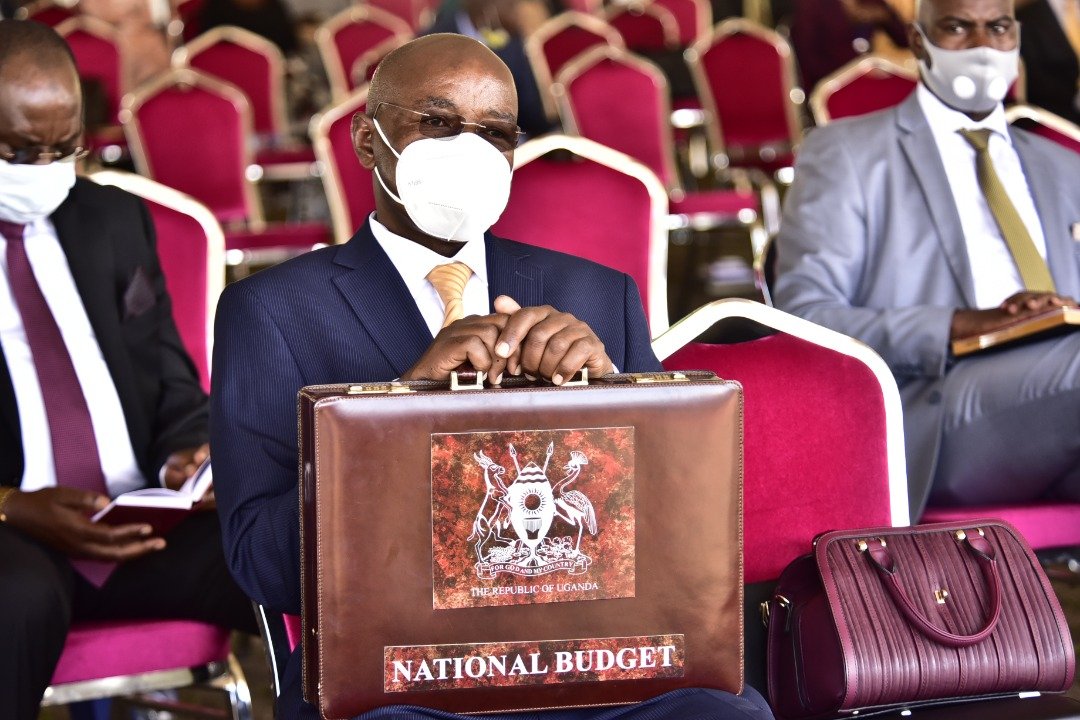KAMPALA-UGANDA/ NEWSDAY:
Parliament has approved the proposed Shs 43.08 trillion national budget framework paper for the financial year 2022/2023. The approved budget is a decrease by Shs 1.69 trillion compared to the current financial year budget.
This followed the adoption of the parliamentary budget committee report tabled by committee vice chairperson Ignatius Wamakuyu Mudimi, and a minority report of the opposition signed by Butambala County MP Muhammad Muwanga Kivumbi, Mawogola South MP Goretti Namugga and Manjiya County MP John Baptist Nambeshe.
Wamakuyu told parliament that the decrease in the budget is mainly attributed to a projected fall in external borrowing for budget support by Shs 2.279 trillion, while domestic borrowing is also projected to decrease by 8.72 per cent, equivalent to Shs 1.002 trillion.
“Domestic revenues are expected to increase by Shs 2.89 trillion on account of increased tax revenues as a result of the implementation of the domestic revenue mobilization strategy and a projected growth of the economy,” Wamakuyu added.
Wamakuyu explained that funds in the national budget have been allocated to 20 programmes in line with National Development Plan (NDP III) and that human capital development (Shs 6.91 trillion), governance and security (Shs 6.48 trillion) and integrated transport infrastructure and services (Shs 4.85 trillion) have been financially prioritized.
Government in the financial year 2022/2023 plans to collect Shs 25.72 trillion in domestic revenue compared to the Shs 22.83 trillion target for this financial year 2021/2022. Documents before parliament also indicate that the other sources of funding for the next budget are grants totalling Shs 869 billion, domestic borrowing Shs 10.4 trillion and external borrowing of Shs 5.99 trillion.
Interest payment and external debt repayment take the biggest chunk of next financial year’s budget at a total of Shs 10.11 trillion and domestic refinancing allocated Shs 5.08 trillion. This is equivalent to 36.2 per cent of the total Shs 43.08 trillion national budget.
The budget committee observed that in order to support economic recovery and bring on board sections of the population in the subsistence economy to the monetized economy, the rationalization of the budget is paramount. Wamakuyu, however, said that rationalization of the wealth funds must be informed by comprehensive evaluation studies to ensure that the benefits from these wealth funds are not lost.
Under the opposition minority report, MP Goretti Namugga recommended that government agencies decentralize their services to the parish development model other than the creation of new execution structures.
“Government has adopted the parish development model as a national development strategy with an emphasis on the parish being the lowest planning unit. This, therefore, demands in the spirit of decentralization that all ministries, departments and agencies should operate and execute their mandates of the parish level. This would require no new structures and additional resources for MDAs already have been allocated resources to execute their mandates,” Namugga said.
The opposition also said that with the shift to programme-based budgeting, there should be a shift in the prioritization of audits by the auditor general. Namugga said that emphasis should be placed on setting performance targets for value for money audits.
She said that, unlike output-based budgeting whose audit is more targeted to accountability, programme-based budgeting focuses on outcomes or changes arising from interventions which can be best ascertained through value for money audits. Patrick Isiagi, the budget committee chairperson agreed with carrying out more value for money audits as highlighted by the minority report.
The leader of opposition in parliament Mathias Mpuuga Nsamba said that value for money audits in the programme based budgeting are very key because, in this form of budgeting, accountability can be easily shielded and protected.
“We need to be very clear on auditing value for money under the new budget framework which is programme based,” Mpuuga said. He also questioned the direction of the economy without adequate planning towards the sectors like agriculture, oil and others that are looked at, as some of those to revitalize the economy.
Amos Lugoloobi, the minister of state for Planning said that the ministry of Finance is going to analyze issues raised in the two reports and ensure their implementation. According to the Public Finance Management Act, the government is supposed to table the budget framework before parliament by 31st December and this must be discussed, approved by parliament, and recommendations made to the President by the February 1.



